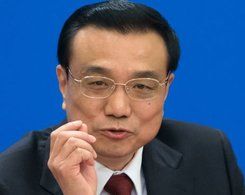Chinese FDI (foreign direct investment) hit a four year low, probably reflecting international investor caution following the series of alleged unfair targeting of foreign companies in antitrust investigations.
Foreign direct investment into China in August was $7.2 billion, fourteen percent lower than in August 2013, according to figures published today by the Ministry of Commerce. In July, FDI plunged by 17%.
It has been five years since China last posted two successive months of FDI declines of 10+%. August marked the third consecutive month of falling FDI.
During the first six months of 2014, China’s FDI totaled $78.3 billion, 1.8% down on the same period in 2013.
In a letter to Chinese Vice Premier Wang Yang, US Treasury Secretary Jacob J. Lew said his country’s anti-trust regulators’ approach to foreign companies may have consequences for US-Chinese bilateral ties, according to Bloomberg News, which quoted an unnamed person familiar with the correspondence.
At the beginning of September, the American Chamber of Commerce in China (AmCham) reported that almost half of all foreign firms in the country felt they were being unfairly targeted by antitrust regulators.
Several businesses wonder whether China might lose its appeal as an attractive place in which to invest, an AmCham survey found. Without foreign investment, it is doubtful the country will achieve its GDP growth targets over the medium term.
Investments from South Korea into China jumped by +31.3% (on an annual basis), and by +18.9% from the United Kingdom. However, from Japan the total plummeted by -43.3%, and from the European Union and United States fell by -18% and -17% respectively.

Figures not linked to anti-trust measures, says China
At a briefing today, Shen Danyang, a spokesman for the ministry, assured that the latest FDI figures have nothing to do with the country’s anti-trust measures.
It is doubtful whether China’s target of 7.5% GDP growth for 2014 will be achieved. Dwinding FDI will be another headache for Premier Li Kegiang as he tries to steer his country towards a path of sustainable economic expansion.
During the summer, a string of data coming out of China indicates that the country may be losing some of its momentum. Domestic demand has fallen, investment is weakening, and factory output growth is at its slowest pace since the financial crisis.
Weak import demand means China’s stimulus measures enacted earlier this year have had a more temporary effect than the authorities had expected. The government will probably consider more measures.
